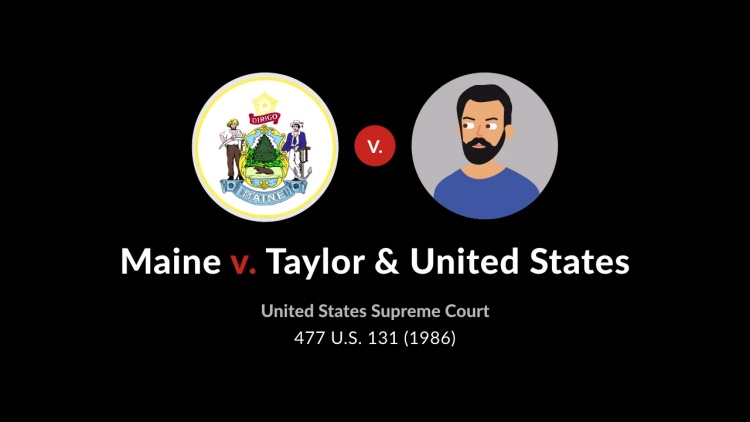Maine v. Taylor & United States
United States Supreme Court
477 U.S. 131 (1986)
- Written by Megan Petersen, JD
Facts
A Maine statute prohibited the importation of live baitfish from other states. Robert Taylor (defendant) owned a bait business in Maine and arranged to import 158,000 golden shiner minnows from other states to be sold in his Maine business in violation of the Maine statute. His shipment was intercepted, and a federal grand jury indicted him for conspiring to import fish in violation of state law, a violation of the federal Lacey Act Amendments of 1981. Tayler moved to dismiss the indictment on the grounds that the Maine statute was an unconstitutional burden on interstate commerce and thus could not form the basis for a violation of federal law. The State of Maine (plaintiff) intervened to defend the validity of its statute on the grounds that the ban legitimately protected the state’s minnow population from the introduction of new harmful parasites and nonnative species. The district court considering the case agreed with Maine that the prevention of harm to its native fish population by prohibiting the interstate commerce of nonnative fish was a legitimate state purpose. The district court upheld the constitutionality of the law, but the court of appeals reversed. Maine appealed to the United States Supreme Court.
Rule of Law
Issue
Holding and Reasoning (Blackmun, J.)
Dissent (Stevens, J.)
What to do next…
Here's why 899,000 law students have relied on our case briefs:
- Written by law professors and practitioners, not other law students. 47,000 briefs, keyed to 994 casebooks. Top-notch customer support.
- The right amount of information, includes the facts, issues, rule of law, holding and reasoning, and any concurrences and dissents.
- Access in your classes, works on your mobile and tablet. Massive library of related video lessons and high quality multiple-choice questions.
- Easy to use, uniform format for every case brief. Written in plain English, not in legalese. Our briefs summarize and simplify; they don’t just repeat the court’s language.





